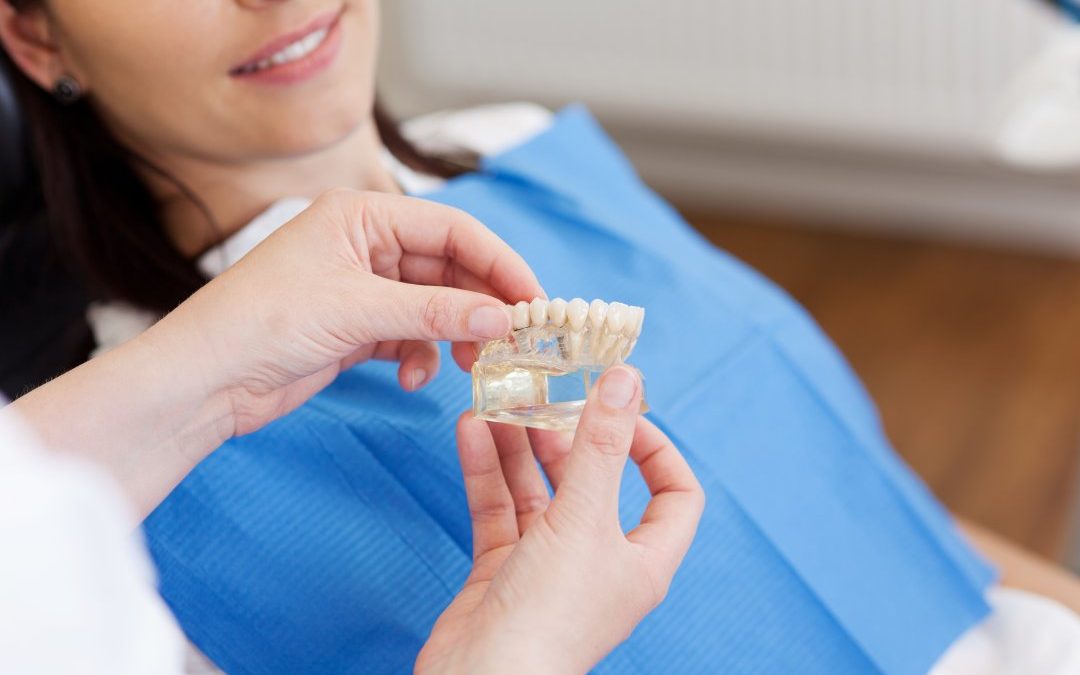Those who are missing one or more teeth often choose dental implants. During this surgery, a titanium post that replaces the missing tooth root is inserted into the jawbone. A dental crown or bridge is then affixed to the top of the implant once the post has been set, concluding the repair of the lost tooth or teeth.
What is the Surgical Process Like?
There are typically multiple steps involved in the dental implant surgery procedure. To decide if you are a good candidate for dental implants, you’ll need to pay a visit to a dental clinic near you. The dentist will first conduct a thorough examination. Evaluating the health of your jawbone and choosing the ideal location for the implant will require obtaining x-rays and potentially a CT scan.
The implant placement procedure will then be carried out by the dental surgeon. The gum tissue must be slightly punctured in order to expose the jawbone during this treatment, which is normally carried out under local anesthesia. When the post has been inserted into the jawbone, sutures are used to seal the wound.
A few months of healing time is needed once the implant has been inserted. During this period, osseointegration, a process that fuses implants with surrounding bone tissue, will take place. The dental surgeon will affix an abutment, which serves as a point of connection for the dental crown or bridge, to the top of the implant once the healing process is over.
The dental implant restoration is finished by fastening the dental crown or bridge to the abutment.
Recovery After Dental Implants
The process of recovering from dental implant surgery is crucial. It is possible to limit the risk of issues and ensure appropriate implant healing, according to your dental surgeon’s post-operative instructions. The following are some common recommendations for healing following dental implant surgery:
- Rest: After surgery, it’s crucial to rest; therefore, refrain from any heavy physical activities for the first few days.
- Pain management: After dental implant surgery, pain and discomfort are typical. To assist you in managing your discomfort, your dentist may recommend or prescribe over-the-counter painkillers.
- Ice: Applying ice to the injured region might help to lessen pain and swelling.
- Watch what you eat: Eat only soft, cold foods for the first several days following surgery, such as yogurt, soup, or smoothies. Don’t eat anything hot or crunchy that could aggravate the surgery site.
- Oral hygiene: Maintaining good oral hygiene is crucial during the healing process. Your dentist could suggest a specific mouthwash or give you further cleaning instructions for the surgery site.
- Follow-up Appointments: To ensure proper healing and keep an eye on any potential issues, it’s crucial to keep all follow-up consultations with your dental surgeon.
After dental implant surgery, some soreness and discomfort are normal. See your dental surgeon right away if you feel significant pain, bleeding, or swelling that does not subside soon. These can be symptoms of a problem that needs to be handled right now.
The duration of recovery varies based on the patient and the complexity of the treatment. After surgery, the majority of patients can resume their regular activities in a week or two. However, a full recovery could take many months because the implant needs time to osseointegrate with the jawbone.
Dental Implants in Winnipeg
Following the post-operative recommendations of your dentist in Winnipeg is crucial for a quick and effective recovery from dental implant surgery. Markham Dental Centre, your local dental clinic near you offers dental implants near you so that you can get your preferred treatments at your convenience and ease. Our team is dedicated to providing you with the best experience so that dental appointments are not something you fear.
Contact us today!

